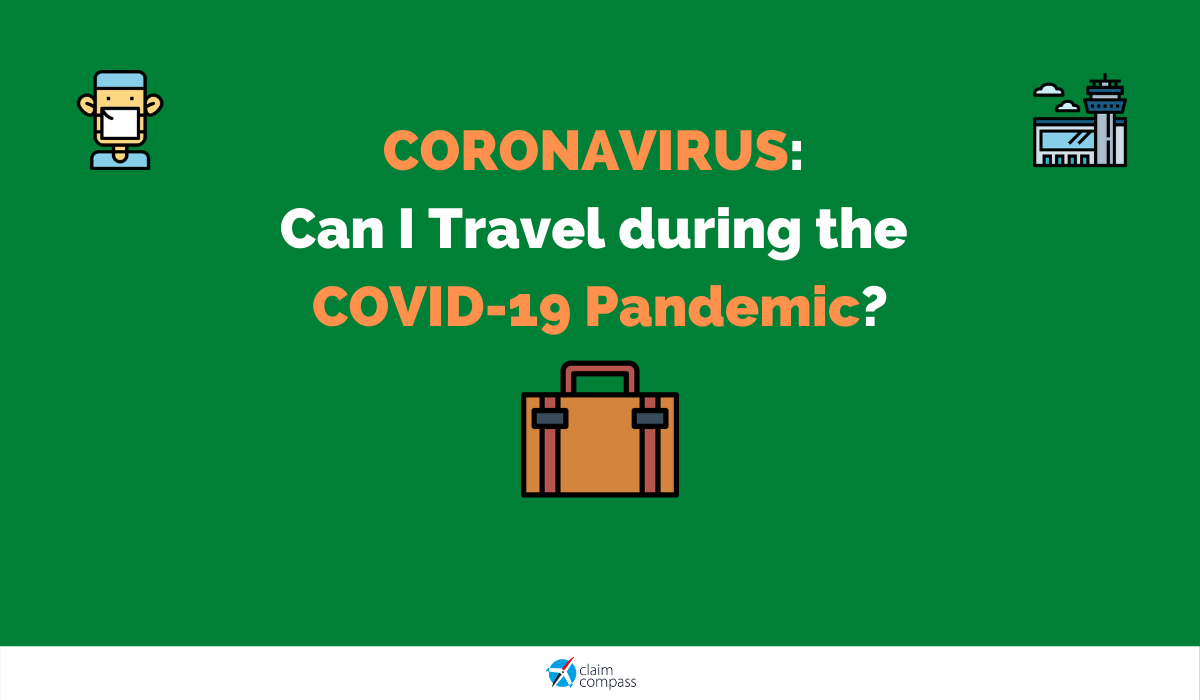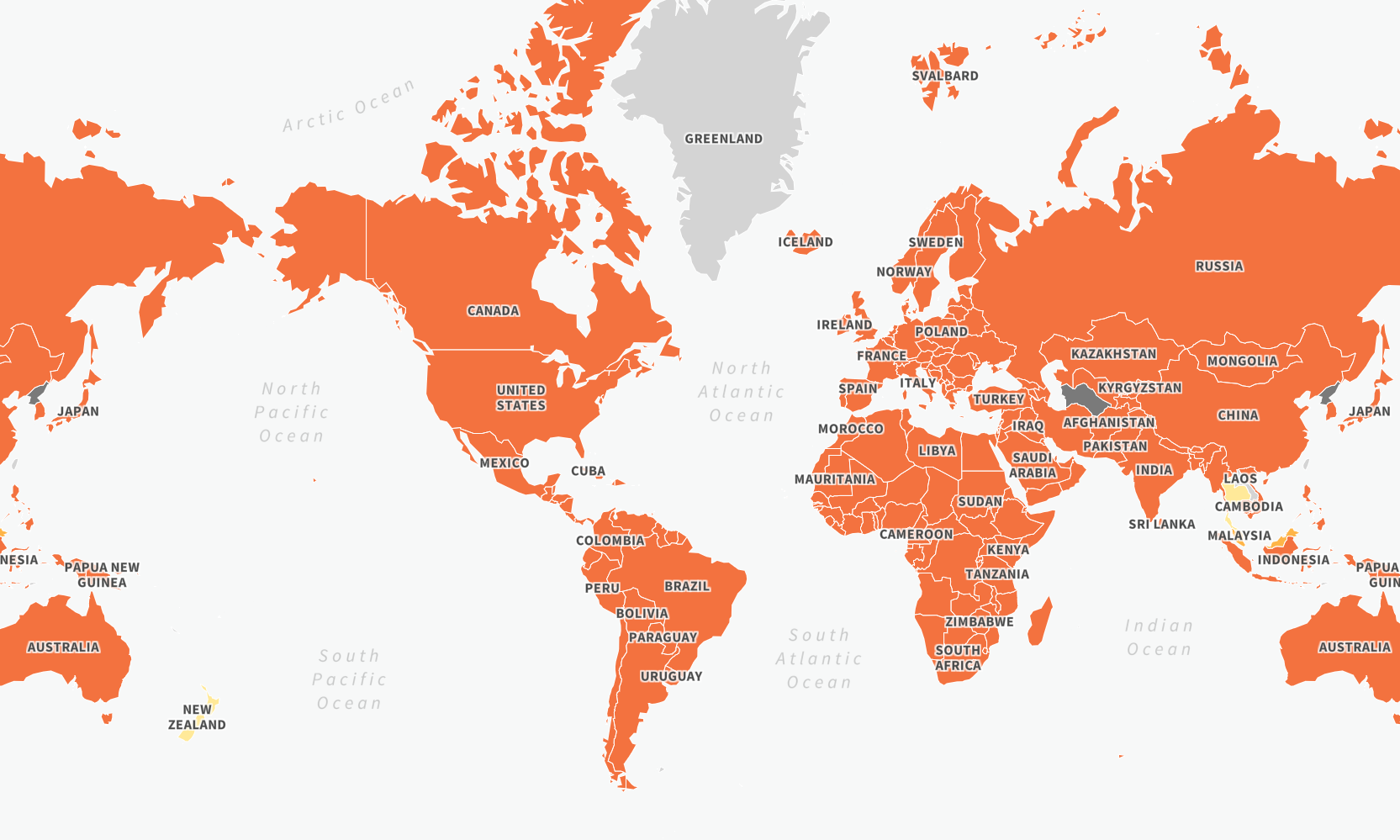Am I Able to Travel During the COVID-19 Pandemic?
Local authorities and intergovernmental agencies recommend to suspend all non-essential travel. But if you want to, can you travel safely?

Let’s get one thing straight, right off the bat:
By traveling, you increase your chances of both GETTING and SPREADING the coronavirus disease. It’s by staying home that you’ll reduce the risks for both yourself and your close ones. Just because you don’t have to self-isolate doesn’t mean you shouldn’t.
That’s why it is still highly recommended to cancel or postpone all non-essential travel plans.
Right, now, keeping that in mind: Can you travel during the coronavirus pandemic?
Yes.
Most countries and intergovernmental organizations have lifted coronavirus travel restrictions.
But don’t expect to travel the same way you did in pre-COVID times.
Did you know that if your flight was canceled because of coronavirus, you could get a refund?
What precautions should I take while traveling during the coronavirus outbreak?
4 questions to ask before traveling
1) Are you at risk of severe illness from COVID-19?
While COVID-19 doesn’t differentiate (anyone can get it), there are two groups that are more at risk than others: the elderly and people with underlying medical conditions, especially those affecting the lungs. If you belong to one of these two groups (or both), for your own sake, the best travel advice we can give you is to stay home. Needless to say, you cannot travel if you have COVID-19.
2) Do you live with someone at risk of severe illness from COVID-19?
If there is a vulnerable person among the members of your household, consider listening to government advice: do not travel and stay in self-isolation. Even if you do not present coronavirus symptoms, you may still be a “healthy carrier” and spread the disease to your loved ones on your return.
3) Is COVID-19 spreading at your destination?
The more people are infected at your destination, the higher the chances are that you will be too. Maybe there aren’t too many cases of COVID-19 where you live. To keep it that way, it’s best to stay away from areas that are the most hit.
If you’re traveling in the US, check out this data from the Center for Disease Control and Prevention (CDC) to know the number of people affected by state. If you’re considering international travel, consult this map instead, with a list of countries and how safe it is to travel there, as per the latest advice. No, it doesn’t look good, there are a lot of high-risk countries...

4) Are there restrictions or requirements for travelers at your destination?
If you’re traveling with the US, know that each state has different requirements: you might have to wear a face mask in the street in some, while others don’t make it mandatory. As a rule of thumb, you want to head to a place where safety measures are taken seriously. No one enjoys wearing a mask or submitting for a test, but that’s what it takes to keep the disease from spreading.
No, keep in mind that some US states and local authorities at international destinations may require that you stay under lockdown up to 14 days after your arrival. That’s because you can continue spreading the disease up to 14 days after being contaminated. If those measures are enforced, consider whether this makes your trip worthwhile at all.
5 travel tips to protect yourself (and others) while traveling
1) Wear personal protective equipment
Most travel companies have implemented a new rule that consists of wearing a face mask. Even if face covering is not mandatory, make sure to wear one. Not only in the plane, train, or bus, but also in public places.
2) Wash your hands frequently
Hand hygiene is the best protection against the virus. Most public areas are equipped with toilets where you can wash your hands with soap and water. When this isn’t an option, use a hand sanitizer with a high amount of alcohol (above 90% is best). It doesn’t smell good and it doesn’t beat soap, but that’s MUCH better than nothing.
3) Respect social distancing as much as possible
Depending on how you’re planning on traveling, it will be more or less easy to maintain physical distancing. Going against health advice, public transport is hardly enforcing any efficient distancing measures preventing people from entering in close contact (such as an empty seat between each passenger). Whenever you can, try to keep at least a 1,5m distance between other people and yourself
4) Avoid contact with someone who is sick
That one seems obvious. The idea is not to fall into paranoia: while COVID-19 is at the forefront of our mind at the moment, other diseases still exist. Just because someone sneezes or has fever doesn’t mean they have been infected with coronavirus. That being said, better safe than sorry: you better keep your distances.
5) Don’t touch your eyes, nose, and mouth
Easier said than done, but try to avoid touching your face while traveling. Those three areas are entry points for the virus, so the less they come in contact with your hands, the better.
Precautions after traveling
Even if local authorities do not require you to do so, consider a period of self-isolation when you return home, especially if you can afford working remotely.
You probably can’t wait to tell family members and friends about your trip, but consider doing so on the phone or via a video call. Remember that you could transmit COVID-19 even though you’re not presenting any symptoms yourself.
For peace of mind, think about doing a test. If you don’t have it, well, good for you! If you do, contact your GP or public health officials to know what’s the best course of action.
Considerations specific to most common types of travel
Air travel: how to travel safely by plane during the COVID-19 pandemic?
The first high-risk situation is the time spent at the airport, where you’ll be in close proximity with other travelers and exposed to frequently-touched surfaces, during the security check for instance. Make sure to wear a face mask - it should be mandatory at the airport anyway - and gloves if possible. Maintain social distancing as much as possible.
On the plane comes the second high-risk situation, especially if you’re traveling on a crowded flight. If there are empty rows or some with only one passenger, try to move to those: the idea is to keep one seat between you and the other passengers. But more likely than not, it won’t be possible. We recommend booking a window seat, where you’ll be less exposed to the other passengers than on the aisle and not stuck between two others in the middle seat. Obviously, wear your mask throughout the whole trip.
What are some precautions for bus and train travel during the coronavirus outbreak?
Just like on the plane, you are exposed to other people when traveling by bus or plane.
- Practice physical distancing as much as possible and avoid touching surfaces.
- Wear your mask during the totality of the journey.
- Make sure to carry a hand sanitizer with you to clean your hands regularly.
What to consider when traveling by car or RV in COVID times?
This is probably your safest bet, as you have control of who gets to ride with you. That being said, consider limiting the amount of people traveling in the same car.
Before the trip, clean and disinfect your car, especially the frequently touched surfaces: the steering wheel, gear shift, door frame/handles, windows, radio/temperature dials, and seatbelt buckles.
Drive with open windows to improve the car or RV’s ventilation. If you’re more of an AC person, make sure that the air conditioning is set on non-recirculation mode.
When paying for parking, use contactless payment wherever possible. But not all parking meters offer this option, so you might want to carry alcohol wipes to disinfect the surface or at least wash your hands afterwards.
Traveling during the COVID-19 pandemic
Government guidance is clear: eliminate non-essential travel from your plans. But if you’re set on traveling during the pandemic, at least now you know how to do so as safely as possible.
If you’re based in the UK or traveling to England, Wales, Scotland, Northern Ireland, you can find further information on the Foreign and Commonwealth Office (FCO), the NHS’ website, or the site of the UK government.
Keep in mind that many flights are canceled as a result of the disease. While you can’t get a coronavirus flight cancellation compensation, you CAN get a refund.
